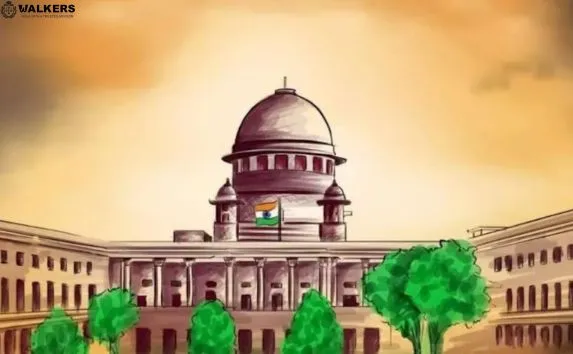


In a recent verdict, the Supreme Court has ruled that the death of a wife in unnatural circumstances within seven years of marriage, in a matrimonial home, cannot be the sole basis to convict the husband for dowry death. The Bench, comprising of Justice AS Oka and Justice Rajesh Bindal, overturned the conviction and sentence of the accused under Sections 304B, 498A, and 201 of the Indian Penal Code, which were imposed by the Trial Court and upheld by the Uttarakhand High Court. The accused had been sentenced to 10 years of rigorous imprisonment under Section 304B, 2 years under Section 498A, and 2 years under Section 201 of the IPC. However, the High Court had reduced the sentence under Section 304 to seven years. The Supreme Court's decision emphasizes the need for strong and compelling evidence to establish the guilt of the accused in cases related to dowry death.
The Supreme Court recently dealt with a case where the father of a deceased woman had filed a complaint alleging dowry death against her husband, brother-in-law, and mother-in-law. The father had claimed that the deceased was subjected to dowry demands and was beaten up and strangled to death by her husband, brother-in-law, and mother-in-law. They had then cremated her body without informing the father. The Trial Court had convicted all three accused under Sections 304B, 498A, and 201 of the Indian Penal Code. However, the High Court of Uttarakhand had set aside the conviction and sentence of the brother-in-law and mother-in-law, acquitting them of all charges. The appellant, who was the deceased woman's husband, had his term of sentence under Section 304B reduced from ten to seven years. The case highlights the need for strong evidence to establish the guilt of the accused in cases of dowry death.
The Supreme Court recently examined a case where the conviction of the appellant under Sections 304B and 498A IPC raised a presumption regarding dowry death within seven years of marriage. The Court analyzed Sections 304B, 498A IPC, Section 113B of the Indian Evidence Act, and relevant judgments pertaining to dowry death. The Court examined if the presumption could be raised against the appellant, thus shifting the onus on him to prove his case. The Court noted that the parents of the deceased were not present at the time of her cremation, but her maternal grandmother and two maternal uncles were present. However, they did not raise any issue or inform the police. The Court emphasized that in cases of dowry death, cruelty and harassment must have occurred soon before the death. In this case, the father of the deceased did not disclose any dowry demand raised immediately before her death. The Court also noted that the prosecution witnesses did not state any cruelty or harassment of the deceased by the appellant or his family members on account of dowry. The allegations were limited to demands for a motorcycle and land made much prior to the death. The Court's decision highlights the importance of strong evidence and timely reporting in cases related to dowry death.
The Supreme Court concluded that the evidence presented by the prosecution did not fulfill the necessary requirements to invoke presumption under Section 304B IPC or Section 113B of the Indian Evidence Act. The Court noted that there was no evidence of cruelty and harassment to the deceased soon before her death, and the ingredients of Section 498A IPC were not met. Thus, the Court held that the mere fact of the wife's death being unnatural in the matrimonial home within seven years of marriage is not sufficient to convict the accused for dowry death. The Court's decision highlights the importance of strong evidence and a clear link between the alleged cruelty or harassment and the victim's death in cases related to dowry death.
Click Here to: Download/View Related File
TAGS: Supreme Court dowry death unnatural death matrimonial home conviction Section 304B IPC Section 498A IPC Indian Penal Code Uttarakhand High Court presumption evidence cruelty harassment demands evidence act prosecution witnesses.